
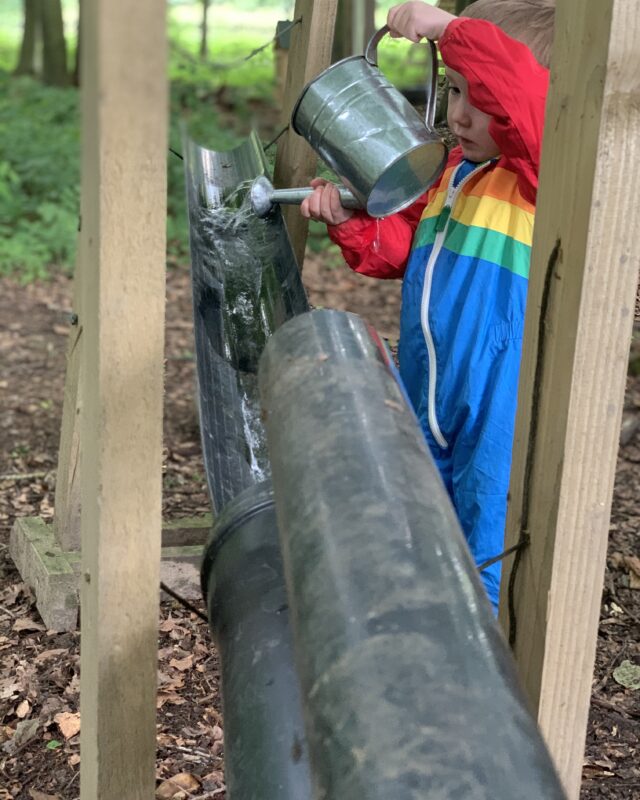
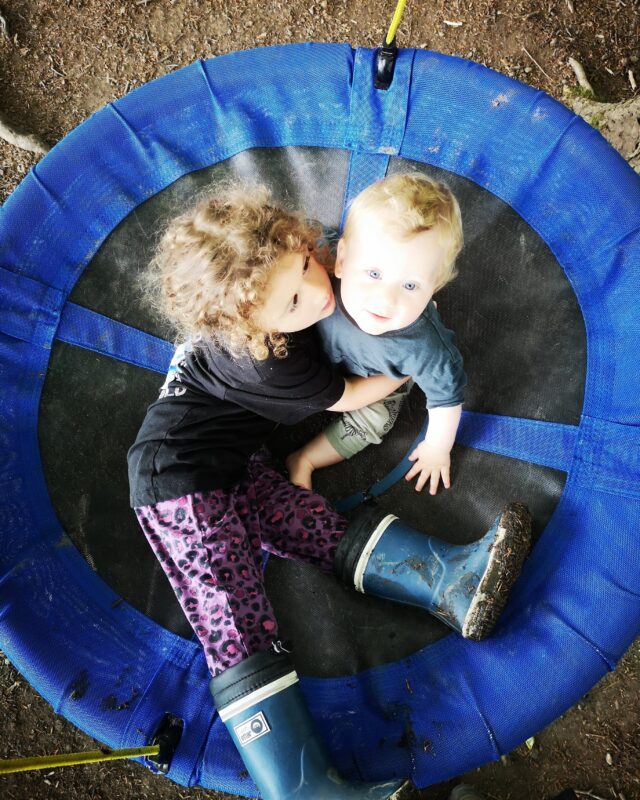
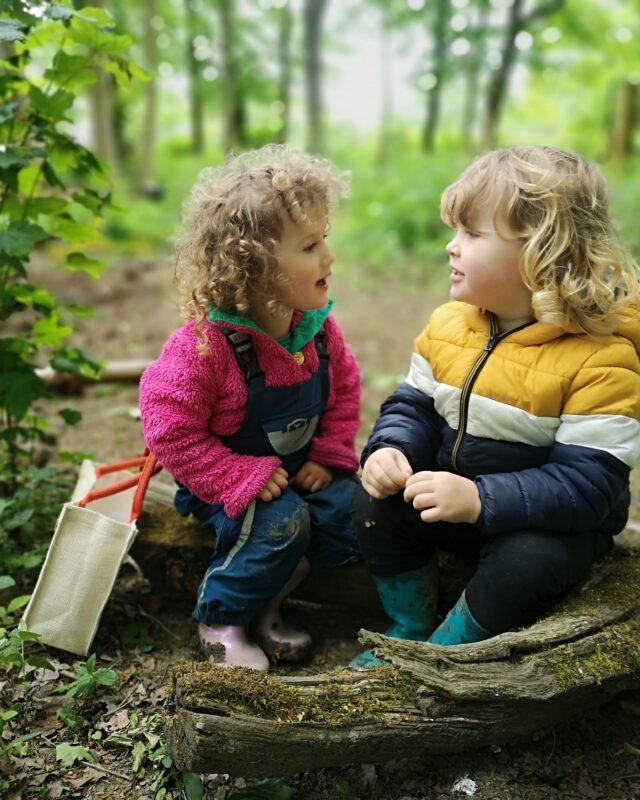
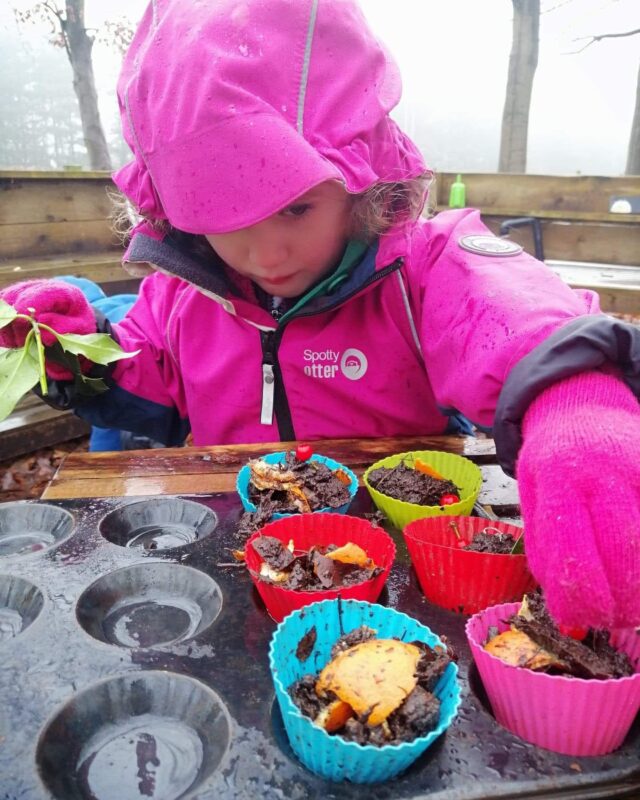
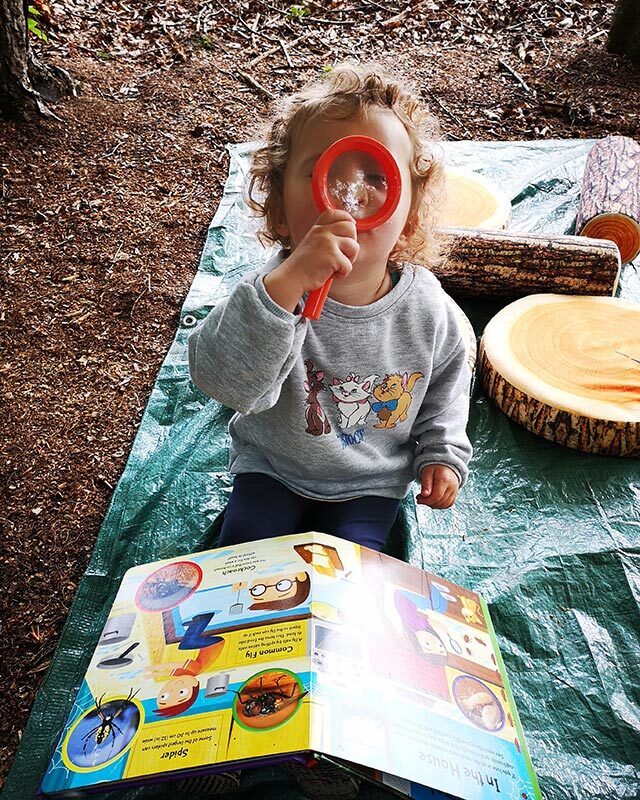


What do you need help with today?
Forest School is a great way to develop children’s connection with nature, individual confidence, resilience, social and communication skills as well as working on fine and gross motor skills and risk awareness.
There are 6 principles of Forest School Good Practice which are:
More information about the Forest School approach can be found https://forestschoolassociation.org/what-is-forest-school/
All sessions are booked and paid for online using our booking system at bookwhen.com/bornoftheforest or by clicking on the ‘Book Now’ button.
Parties and School visits must be arranged via us by clicking the ‘Contact us‘ button.
We like to be as flexible as possible, so for our pre-school play and family play sessions we offer one-off and block booking options. We believe that block bookings are the best option as it is proven that children benefit most when their visits to the woods are regular and over an extended period of time. Returning regularly also allows children to build upon and consolidate the skills they learn with us. They are also cheaper and mean you can change your booking to another date (with 48 hours notice) if you can’t make your session! Regular attendance is at the heart of the Forest School ethos so these sessions are always booked as blocks.
The weekend and school holiday sessions are ‘pop ups’ so are always booked as one offs and the ‘Forest School’ blocks are booked as blocks.
Yes. One adult can bring up to two children (and babies in slings / pre walkers are free with accompanying children). If you would like to bring more than two children (such as childminders), please contact us to discuss. We don’t place a limit on the number of adults able to join.
For both the Pre-school and Family play sessions we recommend that children are able to confidently walk. This is when they will get the most from the sessions. All sessions are recommended from once children can confidently walk. Pre-school play is for children up to aged 5 (starting school) and the Family play is for children up to age 11 (the end of primary school). This is an approximation however and you may feel that your older child would benefit from either session. Feel free to contact us if you’d like to discuss. Babies in slings accompanying older siblings are free of charge but we ask that you book and pay for a space for your child once they reach their first birthday. We recommend Pre-school Forest school for older preschoolers, about 2.5 years old onwards.
Yes. You can park at Follifoot Cricket club which is adjacent to our woodland. Enter through the Cricket Club entrance and follow the road around the field to park around the large tree. We also have access to a toilet at the rear of the cricket pavilion.
Yes. The X70 service runs between Harrogate and Wetherby via Follifoot. There is more information here: https://bustimes.org/localities/follifoot. For making a sustainable travel choice we’ll even give you discount off your session fees. Email us to let us know that you’re travelling by bus and we’ll send you a discount code to use.
Our woodland play sessions aim to give children and their parents/carers time to connect with nature and each other, in a fun and playful way. Children (and adults) who spend more time outdoors are healthier and happier. They learn about and feel a connection to nature and our natural world. This is great for them, our communities and the environment as a whole. Playing outdoors in this way also helps to build resilience, problem solving skills, creativity and communication skills. Our sessions are facilitated by staff qualified in Forest School and Early Year’s Education and Development and will ensure your child gets the most from the sessions
That depends on the season…
During Spring months we recommend wearing a waterproof jacket, wellies or boots with good tread, potentially waterproof trousers, spare socks, fleece, hat, scarf, gloves for colder / wet weather. Potentially sunhat and sun cream for warmer weather.
For Summer months we recommend lightweight, long sleeved and legged clothing; wellies or closed toe shoes with good tread, potentially waterproofs and a jumper too. A sunhat, sun cream and insect repellent are also a good idea for warmer weather.
During Autumn we recommend you keep arms and legs covered and wear closed toe wellies or boots with good tread. You might also want to bring a waterproof jacket and waterproof trousers. Layers- fleece, hat, scarf, gloves for colder / wet weather are also a good idea, plus bring some spares. Potentially sunhat and sun cream for warmer weather.
For the Winter months we recommend wrapping up in layers- Thermal base layers; snowsuit or warm, waterproof coat; jumper or fleece; waterproof over trousers / salopettes; warm boots with a good tread with several pairs of socks; plus hat, scarf, gloves.
Make sure you wear…
All of the above applies to adults attending too!
For technical outerwear we recommend Spotty Otter. Between Mari and Ezra (our mini explorers), we’ve tried much of the range and we have several different splash suits, welly boots, a jacket and trousers! They are all excellent at keeping them totally dry and toasty warm. Get yours here: https://www.littletrekkers.co.uk/brands/spotty-otter The code BORN15 will get you 15% off the entire range on the Little Trekkers site, including Spotty Otter!
We embrace it! We play in all weather and believe it’s just about having the right kit to wear (both children and adults). The woodland gives us some natural shelter from tree cover but we can also build a den, light a fire or we can just carry on playing under our large parachute shelter which is permanently erected.
We stay outdoors in most weather but if conditions mean that safety could be compromised such as very high winds, we will cancel the session. If we have to cancel a session your booking will be transferred or you will receive a credit to use at another time.
The WILD Passport system which is a five-year outdoor learning progressive skills curriculum which evidences learner progression. Learners at any age start their WILD Passport journey at the beginner stage, with ongoing and regular access to Forest School learners would have the opportunity to progress through to the Advanced level of the system. The WILD Passport system groups outcome into 5 key areas; Woodwork; Shelters; Fire; Nature; and Rope.
Below we have outlined very brief examples of outcomes at each level:
• Beginner – Safe use of a peeler; build a den; can idenify a number of different insects; tie a half hitch
• Advanced Beginner – Safe use a knife to create a point on a stick; build a log lean to shelter; light
tinder with fire steel; identify an animal print; square lash two sticks together
• Intermediate – Can craft a mallet; can erect a tent; build and maintain a fire for a minimum of 10
minutes; identify 3 edible wild plants; create a twig loom
• Proficient – Produce a three-legged stool; build a wattle and daub wall; cook a simple dish on the
fire; identify some fungi; erect a rope bridge
• Advanced – produce a cooking utensil; build a raised platform; produce an ember with a bow drill;
create a dichotomous key to identify minibeasts; build a rope ladder.
For more information about Wild Passport visit https://www.wildpassport.co.uk/


